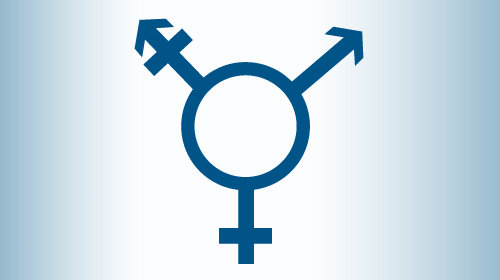
Recently, the ACLU and numerous allied coalition partners wrote to the U.S. Department of Health and Human Services (HHS) to request that HHS issue guidance to make clear that the Patient Protection and Affordable Care Act’s prohibition on sex discrimination applies to discrimination based on gender identity and sex stereotypes. The fact that someone is transgender or does not conform to stereotypical notions of masculinity and femininity should never be a barrier to accessing health care services.
Discrimination in this area could include everything from a refusal to admit or treat an individual based on their gender identity to a requirement that those who are transgender or gender-nonconforming undergo intrusive and medically unnecessary examinations as a condition of receiving treatment.
In response to the LGBT coalition letter, HHS confirmed that this was in fact their view, while stopping short of issuing additional formal guidance at this time (though they have said they plan to do so in the future). The implications for this are, as our colleagues at the National Center for Transgender Equality point out, that LGBT patients facing discrimination based on either their gender identity or a nonconformity with sex stereotypes at hospitals, clinics, doctors’ offices, or other medical providers that accept Medicare or Medicaid (as well as other forms of federal funding) can file complaints of discrimination with the Office for Civil Rights at HHS and expect to have them investigated and taken seriously. This is critically important for LGBT patients and families who are uniquely vulnerable to discrimination and mistreatment in health care settings.
A first of its kind 2010 survey from Lambda Legal found that 56 percent of LGB and 70 percent of transgender and gender-nonconforming respondents reported experiencing one or more of the following in a health care setting: being refused needed care; health care professionals refusing to touch them or using excessive precautions; health care professionals using harsh or abusive language; being blamed for their health status; or health care professionals being physically rough or abusive.
This latest positive development from HHS is in keeping with an ever-expanding number of court decisions and other interpretations making clear that transgender discrimination is sex discrimination.
Most recently, the EEOC issued a landmark decision in April that, following common sense and a growing body of case law, declared that workplace discrimination against transgender people violates the federal ban on sex discrimination in employment. The EEOC said this is true regardless of whether an employer discriminates against an employee because the individual has expressed his or her gender in a non-stereotypical fashion, because the employer is uncomfortable with the fact that the person has transitioned or is in the process of transitioning from one gender to another (as was the case with former ACLU client Diane Schroer), or because the employer simply does not like that the person is identifying as transgender. In Schroer v. Library of Congress, a federal district judge ruled that the Library of Congress illegally discriminated against Schroer in a groundbreaking decision that found that discriminating against someone for changing genders is a prohibited form of sex discrimination.
We at the ACLU will continue to push for clarity that bans on sex discrimination protect those who are transgender. Let’s celebrate the fact that it is becoming increasingly clear that discrimination against transgender individuals – be it in the workplace or in a health care setting – is sex discrimination. But let’s also continue to advocate for more such common sense interpretations. And let’s continue to push for passage of explicit bans on discrimination against individuals based on their sexual orientation or gender identity.
Learn more about LGBT rights: Sign up for breaking news alerts, follow us on Twitter, and like us on Facebook.

